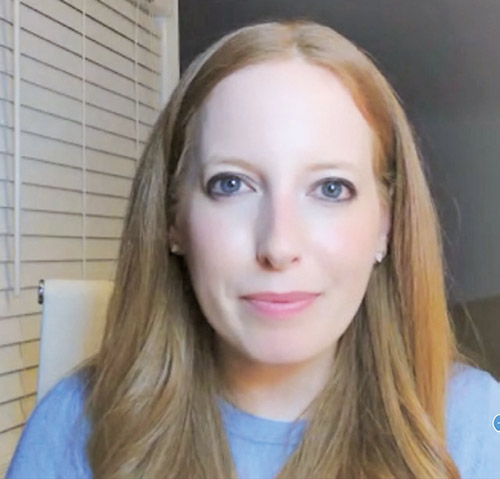
On February 24, SAR parents were invited to a virtual discussion on internet safety, sexual abuse and speaking to children about these important topics. Rahel Bayar presented “Talking to Our Kids About Safe Spaces.” Principal Rabbi Binyamin Krauss opened: “As a school, it’s our responsibility, as teachers, administrators and community, to make sure kids in our building are safe. Anything important, the safety of children and things we teach, come primarily from two places: home and school. The goal tonight is to make sure we’re doing our part in that partnership.”
Bayar began: “Whenever we’re talking about a tough topic, like abuse prevention, it’s overwhelming and scary. Abuse prevention is more than a one-time conversation. For us to get comfortable with effective conversations with our kids, we must be willing to get uncomfortable.
We don’t need to be alarmist.We need to recognize it can happen to our kids, in our communities. We’re not immune, whether in-person, online or in our homes.
“We have preconceived notions about what sexual abusers look like, or how we’d know something bad was happening to our kids,” Bayar continued. “Sexual abuse, the great equalizer, happens everywhere. We have to remove this myth of this scary person. In order to sexually abuse a child, you have to have access to kids, which means you actually have to be good with kids, and not actually be that super-creepy person.
“We grew up with the notion of stranger danger, but 91% of abuse is by someone the family, community or school knows.” Bayar noted. “People who sexually abuse kids fly under the radar. How wouldn’t we recognize it? Most sexual abusers engage in a process called grooming, a slow, steady breakdown of boundaries.”
As part of your children’s safety kits, Bayar suggested talking about body boundaries. “We have to keep our bodies healthy. People have to come into that body bubble to give a shot, help on the toilet or a sibling’s diaper change. No one touches your private parts unless it’s a scheduled appointment or hospital visit, wearing gloves, a parent or guardian is in the room, and they explain to you what they’re doing. We want kids to know they can say no to something that feels unsafe. You can say no, run away and tell someone. If something unsafe is happening, and you freeze, or don’t realize it’s unsafe until afterwards, know it’s not your fault.”
Bayar then listed problems with Snapchat and TikTok. “Social media abuse isn’t just in-person,” she said. “Children can be on their phones or iPads, right in front of you. Snapchats are sent and then disappear. However, nothing online truly disappears. TikTok privacy controls are so limited. Videos viewed by others are potentially shared. People use these apps looking for kids whose guards are down. It’s not just creepy comments; it’s not just cyberbullying.”
Other apps of concern include Whisper, Omegle and Discord. “On the app store, search ‘hidden app’ or ‘hidden calculator app,’ which look like calculators or shopping lists, where kids put photos and videos parents or someone else won’t find. Why would you think to search your kid’s phone for a calculator? On your kid’s Instagram account, look for accounts with ‘tea,’ ‘sip,’ ‘spilling,’ ‘ship’ or’ confessions’. Kids create those accounts to humiliate and make fun of others. We’re seeing cyberbullying, not just posting fake accounts, videos and humiliating things. Kids think it’s funny, they can get away with it, no one’s going to trace it back, or there’s no consequence for tagging someone in anything.”
Bayar described sextortion, a crime with a huge two-year uptick. Photoshopped pictures are sent to kids saying, “If you don’t do what I tell you, I’ll send it to every person in your school and your family.” They even threaten to come to homes and kill the parents.
“Our kids live in a world we help them navigate,” Bayat summarized. “The best way is talking to our kids over and over again. That doesn’t mean spending every family dinner talking about abuse prevention or pedophiles, but when moments arise, use teachable moments just like keeping kids safe crossing the street or teaching them to swim. It takes time, patience and a multifaceted approach. The responsibility is on us.”
Bayar was a sex-crimes/child abuse prosecutor for the Bronx District Attorney’s office, then managing director in the sexual misconduct division of a large global consulting firm. Currently she is founder and CEO of The Bayar Group, LLC, which partners with organizations to prioritize safety, facilitate change and cultivate a safe environment in the areas of sexual misconduct, child abuse prevention, discrimination and harassment. They conduct tailored training for workplaces, schools, camps, youth organizations and faith-based institutions.










